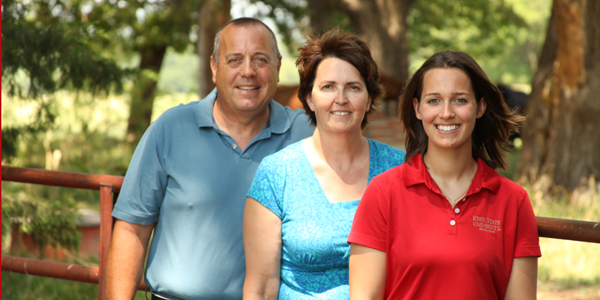
Examining The Roots Of Community
I’m a farmer. At 21 years old, you could call me a beginning farmer. I grew up farming and now I farm 170 acres. I’m financially responsible for my own operation. I help my parents with planting and harvest and they help me. Agriculture is in a major transition because people are more aware of their food sources. This, combined with advances in technology and environmental awareness, will result in exciting changes in the future. I decided to start out on my own in production agriculture because I wanted to be a part of that history.
I rent land from neighbors I’ve known all my life. When I’m away they call me with weather updates or just to ask how I’m doing. That’s how I see farming. It’s about caring for your community, your business and the land.
I just graduated with a degree in agronomy and I plan to pursue a master’s degree in soil science and agronomy. My hope is to work as a consultant or extension specialist before I go into farming full-time. I want others to see the soil as a natural resource where roots grow and flourish.
My first year of farming began with the usual struggles, but was further compounded by last year’s historic drought. It was difficult, but I had planned for the worst-case scenario. What I didn’t expect was the outpouring of support from my neighbors. Even though their farms were undergoing the same stresses, they would call or stop by and express their concern and hopes that this would not discourage me.
I didn’t grow up thinking I wanted to farm, but Iowa State University helped me discover those roots. To help other young people succeed I’ve dedicated time to the Beginning Farmers Network at Iowa State.
In February, I helped organize the 8th Annual Beginning Farmers Conference. Experts, farmers and students gathered to discuss farm succession, market outlooks and financing strategies. It was a conversation starter for both beginning and retiring farmers who realize that change is sure to come.
Today, people are removed from production agriculture and don’t understand what’s involved with farming. I wish consumers knew that taking risks is part of farming. You control input costs, capital purchases and field practices. You can’t control weather, markets and land prices. As a farmer I try to manage these risks.
Like the soils across the landscape, farming provides the roots of a rural community.
Farming is more than the tractor you see planting or the combines that run during harvest. There’s a lot of time and research that goes into planning, calculating and risking it all—to plant a seed.



